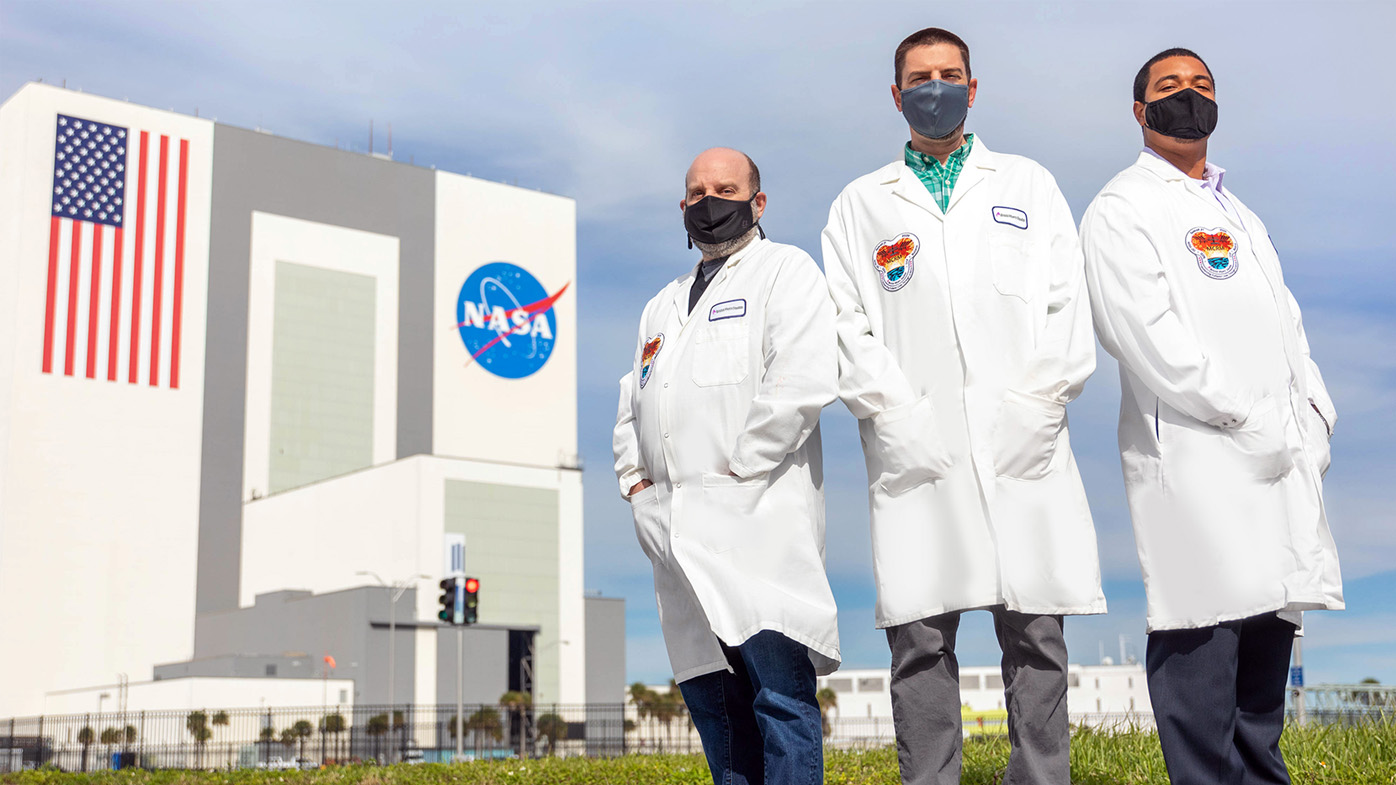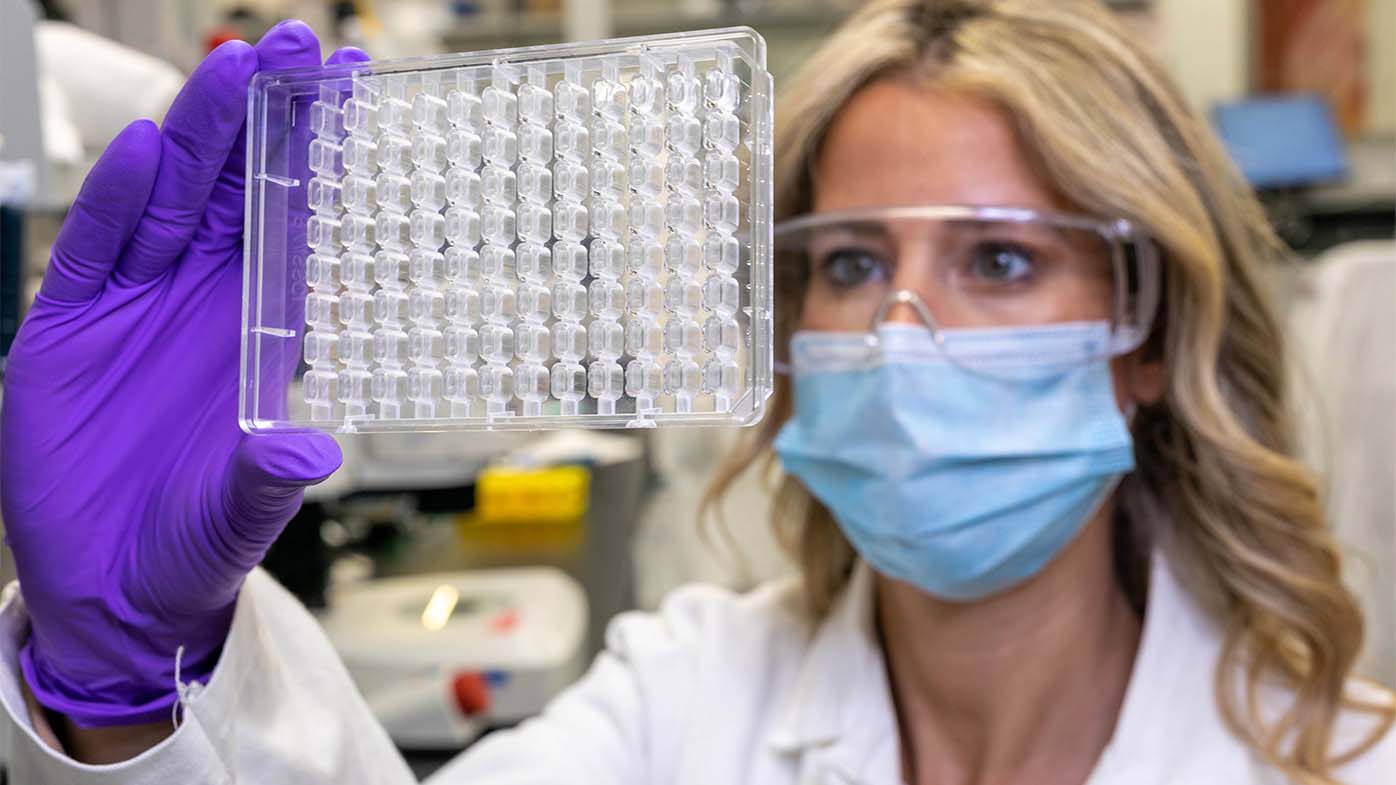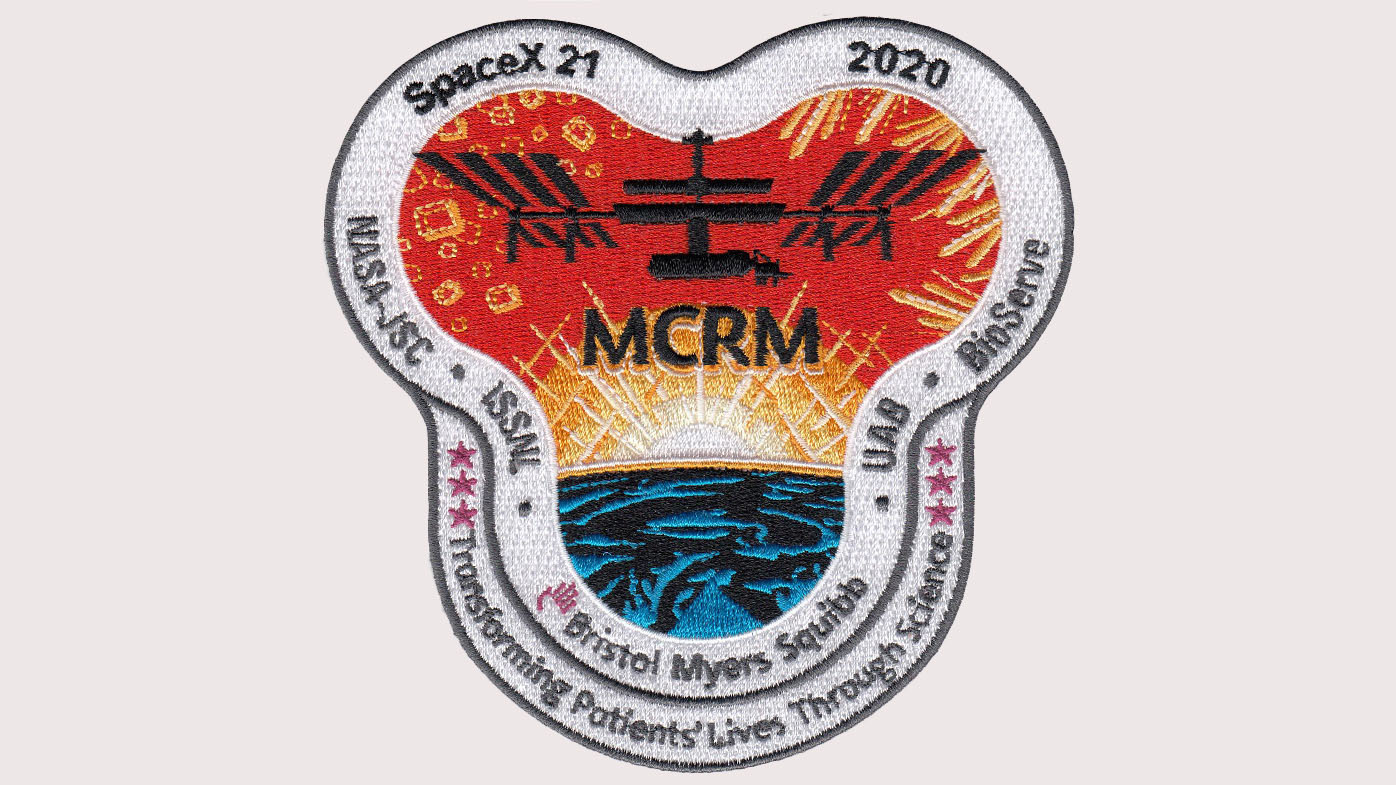
Three members of the company research team were on site at Kennedy Space Center in Florida to prepare the experiment for launch. From left: Senior Research Investigator II Matt Pokross, Robert Garmise, associate director, Materials Science & Engineering; and Research Investigator II Michael Little.
Molecular crystal growth in near-zero gravity
While it’s much more than science fiction, the science still has a way to go. By studying how these molecules crystalize in space, scientists expect to gain new insights into how to advance this research into protein crystallization on Earth.
Just as a jar of honey stored in a refrigerator will form crystals, certain conditions can coax the crystallization of biologics, and micro-gravity is one of them.
“In space, the physics are different. The forces acting upon the crystal molecules are different,” said Robert Garmise, associate director in Bristol Myers Squibb’s Materials Science & Engineering group, and leader of company’s space station research project. “You can get more ordered, higher-quality crystals, more uniform in size and shape, and larger than what you could grow on Earth.”
The experiments will be conducted by a NASA scientist onboard the orbiting laboratory following protocols that Garmise’s team developed and validated at company research labs in New Jersey – work that was halted for a time by the COVID-19 pandemic.
Research Investigator II Michael Little in the Drug Product Development group helped design those protocols. Samples of the three proteins to be studied will be placed in crystallization plates that have numerous, tiny wells. The NASA scientist will set up the plates in a space station lab, combine the proteins with reagents that promote crystal growth, and document their growth with a microscope imager over 30 days.
“We built an internal crystallization screening workflow in our lab in New Brunswick,” said Little. “One of the things this project has displayed to me is how Bristol Myers Squibb supports innovative thinking that could improve the drug development process and patient experiences.”




